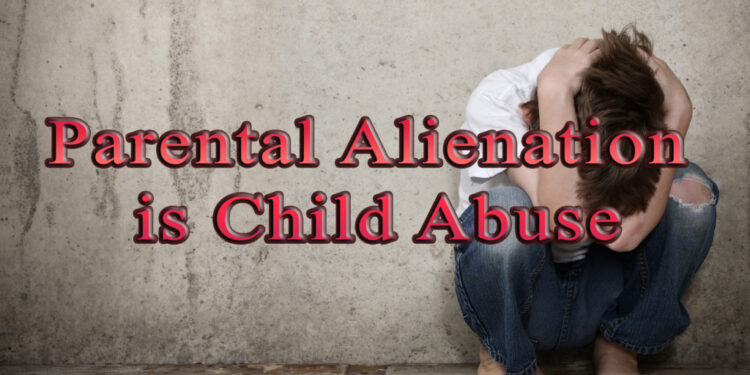Parental alienation is a strategy whereby one parent intentionally displays to the child unjustified negativity aimed at the other parent. A child is said to suffer parental alienation syndrome (PAS) (a term coined by American psychiatrist Richard Gardner in 1985) if he is being alienated by his parent. The purpose of this strategy is to damage the child’s relationship with the other parent and to turn the child’s emotions against that other parent.The child’s estrangement may manifest itself as fear, disrespect or hostility toward the distant parent, and may extend to additional relatives or parties. It is considered child psychological abuse and is subsumed in DSM-5 (V995. 51). It is real, definable, and toxic. In severe cases, it is so malignant that it can undermine a child’s psychological development.
In situations where a child avoids one parent and strongly prefers the other, the only behaviors that can be observed are avoidance and preference. Alienation by one parent thus cannot be directly measured, and is instead inferred from the child’s behavior. Some researchers thus use “preferred” rather than “alienating” parent and “non preferred” rather than “alienated”, “rejected”, or “targeted” parent. The situation most often arises during a divorce or custody battle but it can happen in intact families as well. Parental alienation rips families apart and has a major adverse effect on children’s mental health and security thus, it is a form of domestic abuse.
The severe effects of parental alienation on children are well-documented low self-esteem and self-hatred, lack of trust, depression, and substance abuse and other forms of addiction are widespread, as children lose the capacity to give and accept love from a parent. All of the participants experienced mental health issues, ranging from anxiety and PTSD to suicidal ideation, which they traced to their Alienating Parent’s abuse. Self-esteem. Participants reported having low self-esteem and low confidence in themselves and their abilities. Target parents may also experience both emotional (e.g., fear, guilt) and physical (e.g., nightmares, illness) responses to the alienation.
Good reasons for rejection include a history of family violence, child physical, emotional, or sexual abuse, neglect, mental disorders, or substance abuse. Rejection due to these reasons is an estrangement, not alienation.
To stop parental alienation, work to maintain a positive, loving relationship with the child so that the child feels safe with you. Consider speaking with the other parent about behaviors you’ve noticed. When a child begins to spend time with the alienated parent, it can often allow the relationship to be repaired. Individual therapy for the alienating parent, the target parent, and the child can help throughout this process. If the alienation continues, consider parenting classes, therapy, and going to the Court for help.
Oyetayo Bushroh Omolade
Lagos state university
200level from the Department of English (Education)















